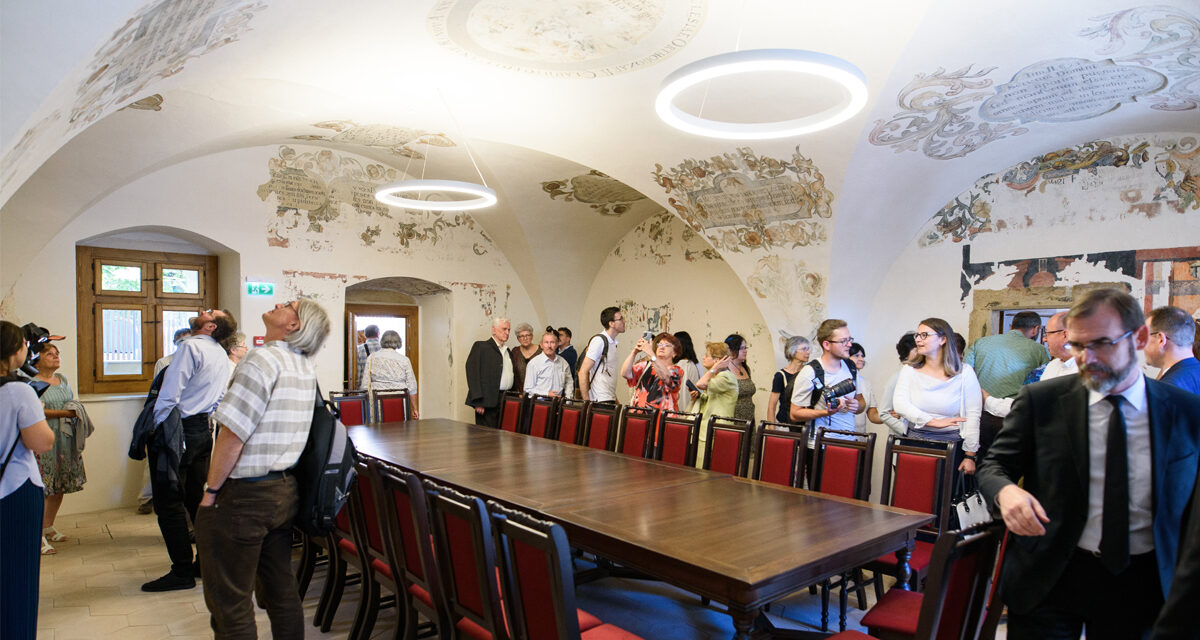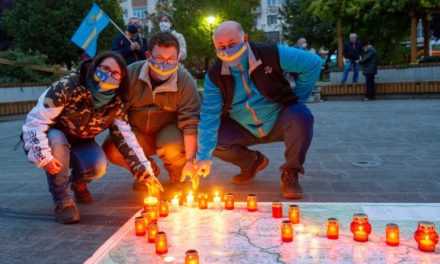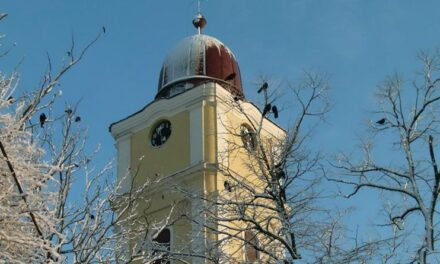Without Cluj, there is no Hungarian history, no Hungarian nation, and the development of the city is also due to the people who live here, to the unity of the Hungarian people - emphasized János Árpád Potápi on Sunday in the Transylvanian city.
The State Secretary of the Prime Minister's Office responsible for national policy took part in the inauguration of Herepei House, the old parish next to the Farkas Street Reformed Church, renovated with the support of the Hungarian government. The 14th Hungarian Days in Cluj-Napoca began with the previous service.
"If togetherness and cooperation are realized, we are capable of miracles"
said the state secretary, referring to the exemplary renovation of the medieval building. He believed that those who have not visited Cluj since the 1980s and 1990s are surprised to see the development, but it "doesn't happen by itself".
"For this development, it was also necessary for us Hungarians to come together, to strengthen the feeling and experience of national belonging in each other," he said.
He emphasized that the investments of the past 12-13 years covering the entire Carpathian basin prove that cooperation creates miracles, and that the historic churches were outstanding partners of the Hungarian government in this work.
"Without the work and help of the Hungarian historical churches, we would not have been able to preserve our Hungarianness and our faith"
said Potápi.
The name of Cluj-Napoca is inseparable from Hungarian historical figures and Hungarian people, he said. "This is not to say that Cluj belongs only to Hungarians. Cluj has always belonged to the people in the past centuries, decades and even today who lived and are living in this city and contributed to the development of this city with their own work, diligence and talent," he pointed out.
He pointed out that the development of the Hungarian community has reached another milestone after the construction and development of churches, schools, kindergartens and universities: the Herepei House will become the space of the youth, the Youth Christian Association (IKE).
He recalled the words of theologian Sándor Tavaszy written in 1942, according to which Hungarians in Transylvania and the Carpathian Basin must be renewed. He added that the people of Cluj were not discouraged, they knew that there was progress if they persevered in their homeland. There is no need to be discouraged by the results of the census, the community that remained at home must be strengthened and the conditions must be created for those who left to return. The Hungarian government is also working on this, he said.
The Secretary of State also touched on the war in Ukraine, stressing that the Hungarian government is standing up, offering a helping hand to the Transcarpathian Hungarians, and that there is no other option than a cease-fire and peace as soon as possible.
Béla Kató, the bishop of the Transylvanian Reformed Church District, emphasized that the church did not renovate the Herepei House for its own sake, just for the sake of monument protection, but to hand it over to the youth. "Let this place be the leaven of the future," he said.
In relation to the Hungarian Days in Cluj, he emphasized the importance of the meeting and reminded that the series of events begins with a thanksgiving in a church of a historical Hungarian church, on which occasion a new community space is built and renovated.
With the Herepei House, the reconstruction of an area of nearly one square kilometer of the Farkas Street Reformed Church, the "holiest space" of the church, has been completed.
"The church, the two schools, the kindergarten and this house perfectly illustrate what is needed in the future to preserve the Hungarianness of Cluj."
- said Béla Kató, also referring to the nearby educational institutions.
Oláh Emese, deputy mayor of Cluj-Napoca, called the house another treasure of Cluj-Napoca, which proves that it is worth being Hungarian in the city.
Apetroae Lucas, the youth representative of the church district, expressed the feeling of joy and gratitude for the gift received on behalf of IKE.
The history of the building and its renovation were described by art historian Attila Weisz, who says that it is the jewel of Cluj and Transylvania because of the late Renaissance wall painting found in the council chamber, the biblical quotations and admonitions in Latin. He especially thanked that the church did not spare the time and money for its restoration.
A time capsule was also placed at the ceremony, and after the ribbon cutting, Bishop Béla Kató blessed the church property, which had been renovated in two years.
MTI
Featured image: People interested in Cluj, the old parish next to the Farkas Street Reformed Church, at the inauguration of the Herepei House, renovated with the support of the Hungarian government, on August 13, 2023. MTI/Gábor Kiss













